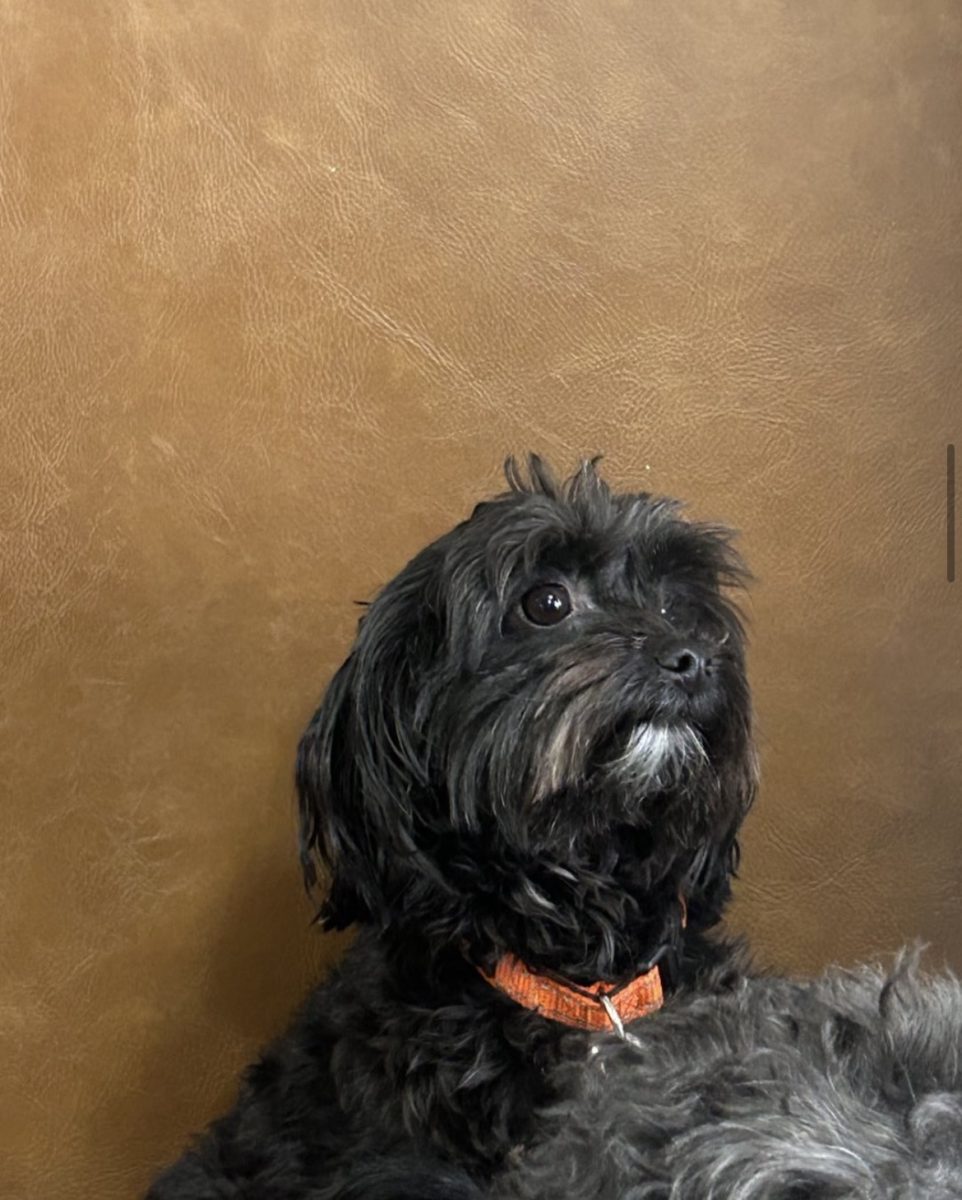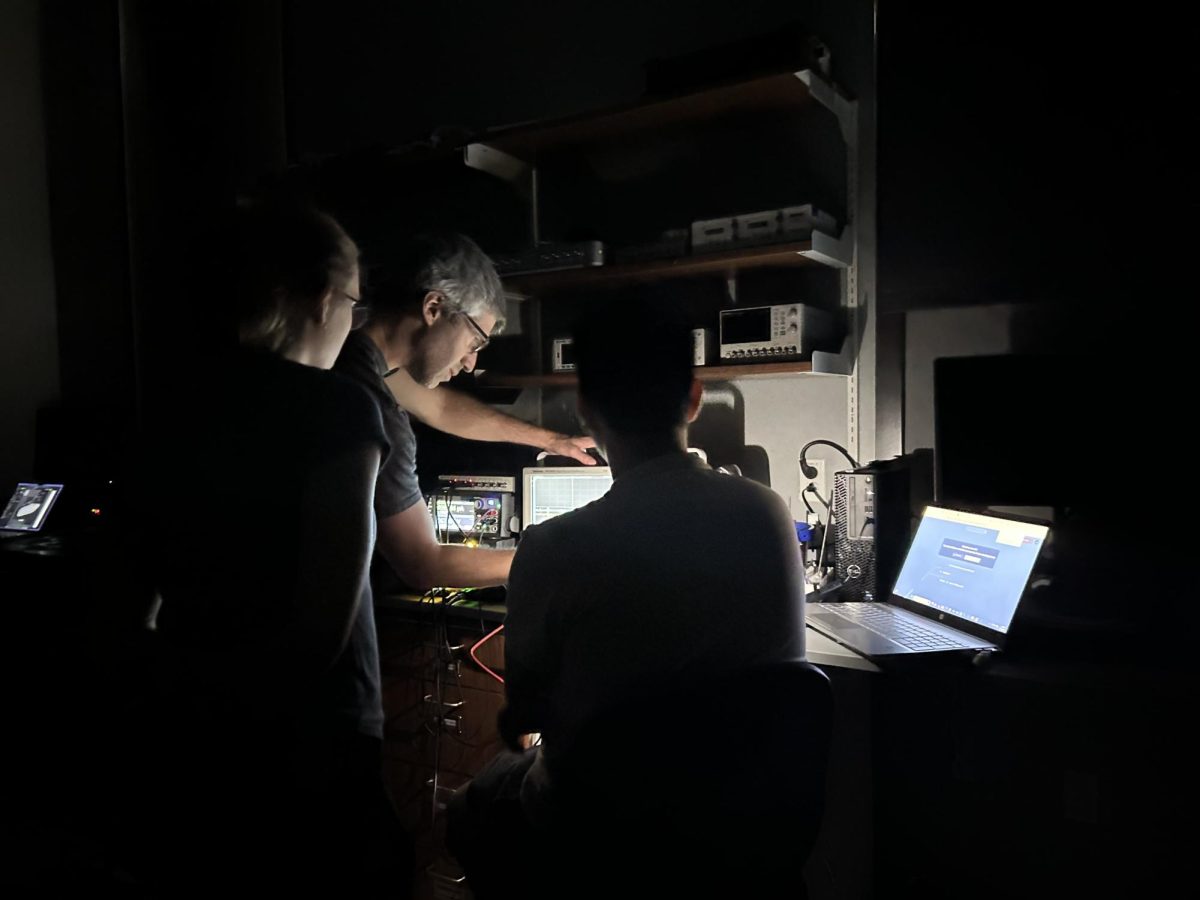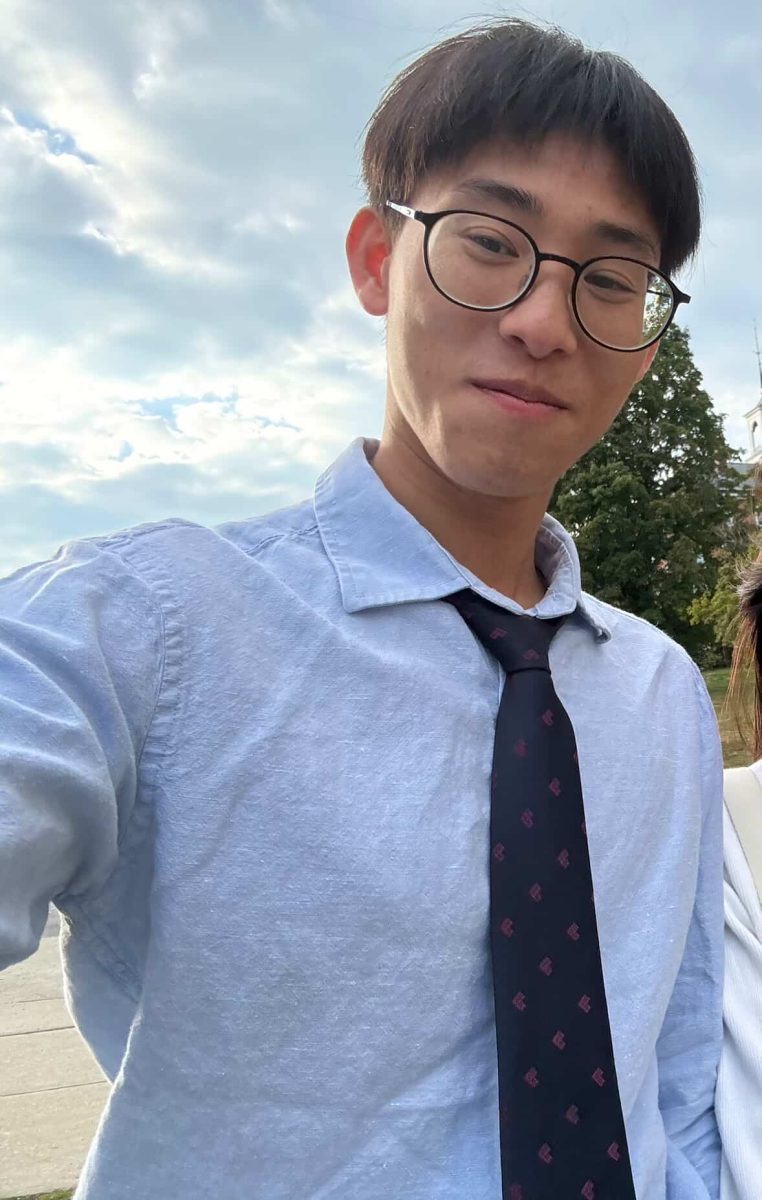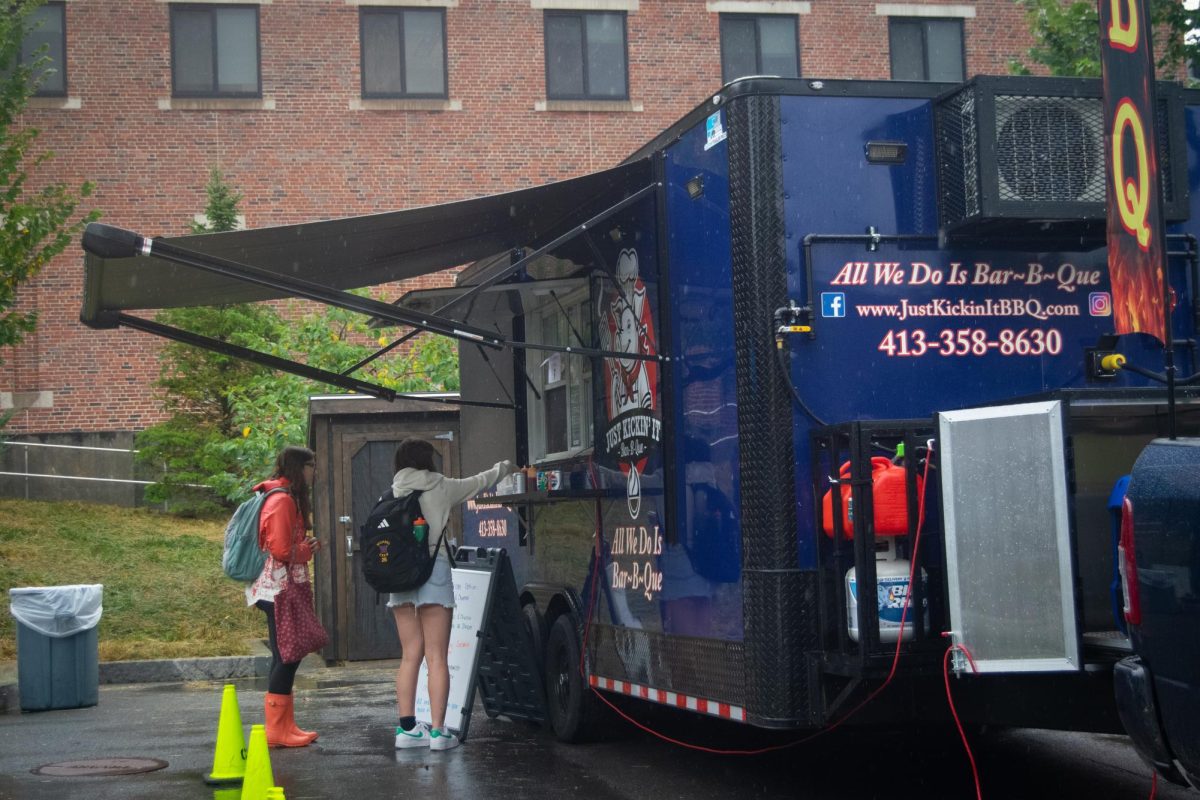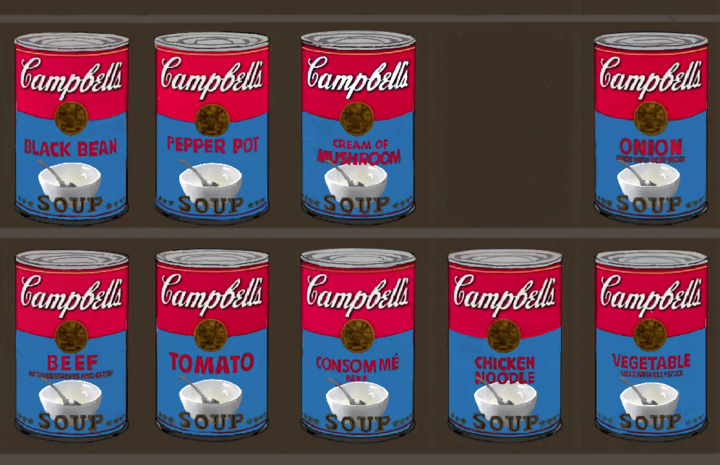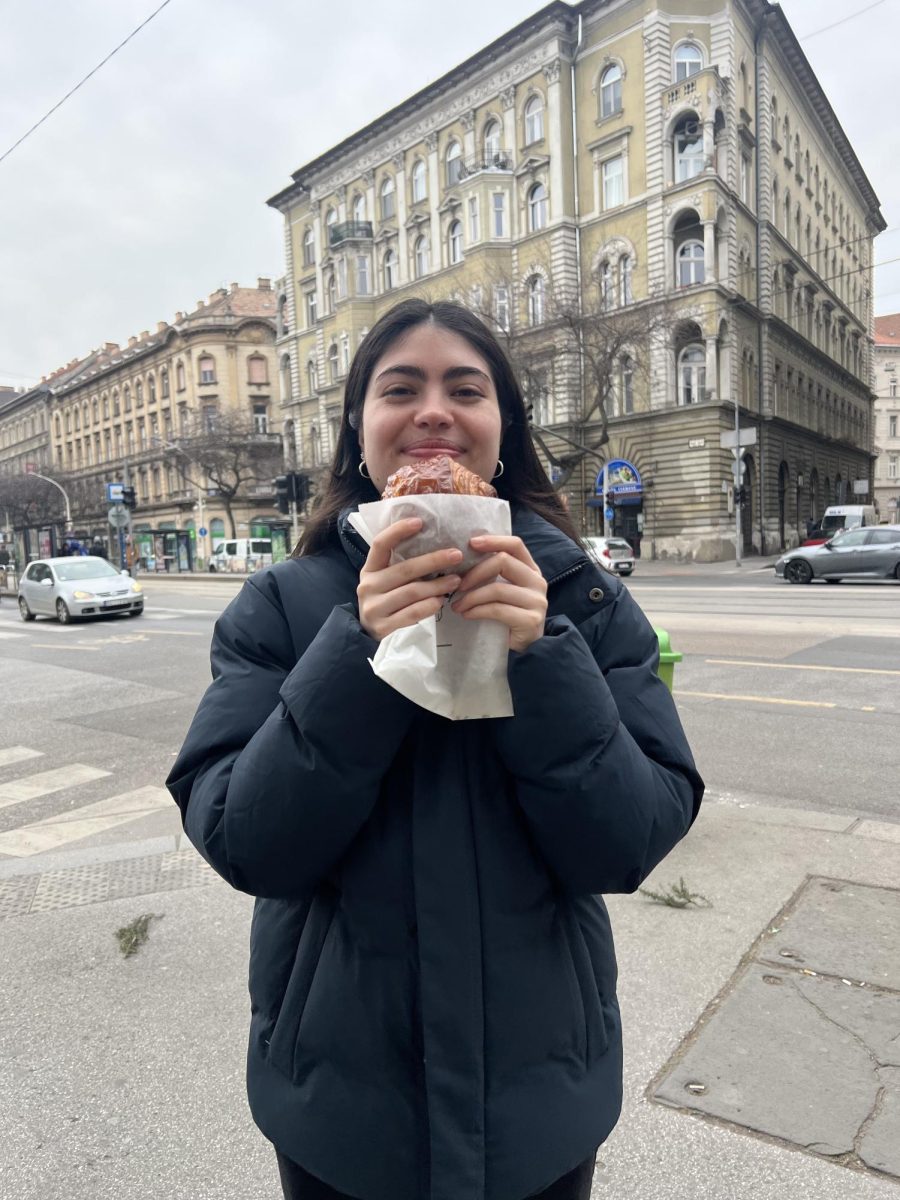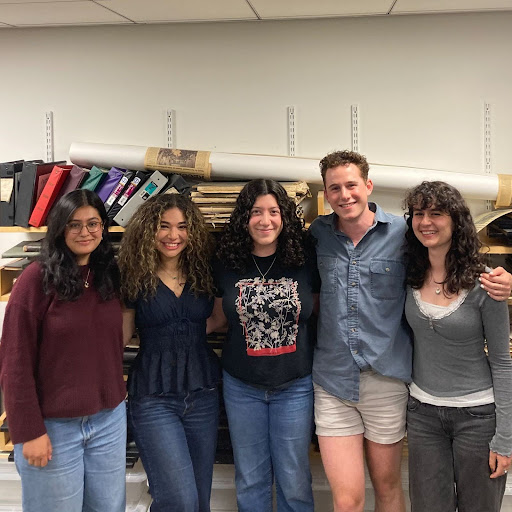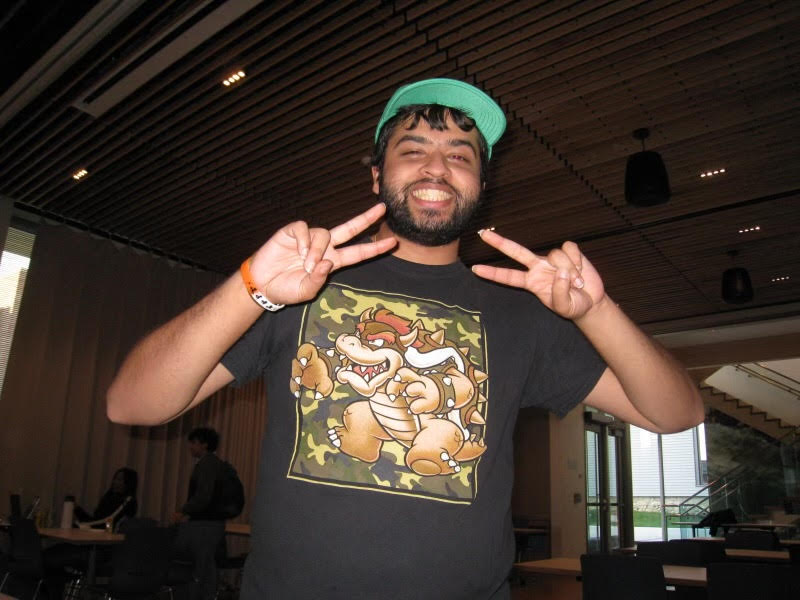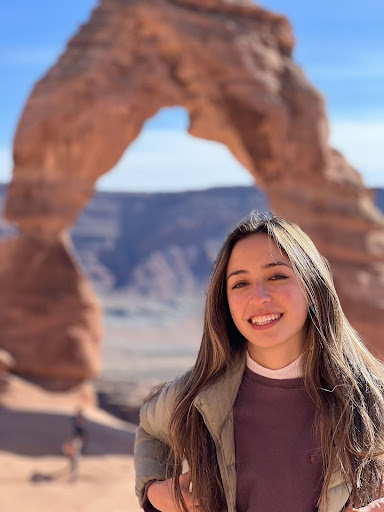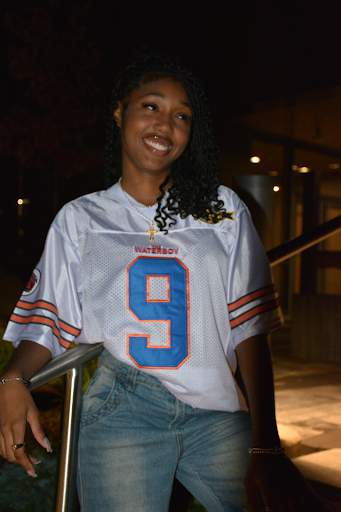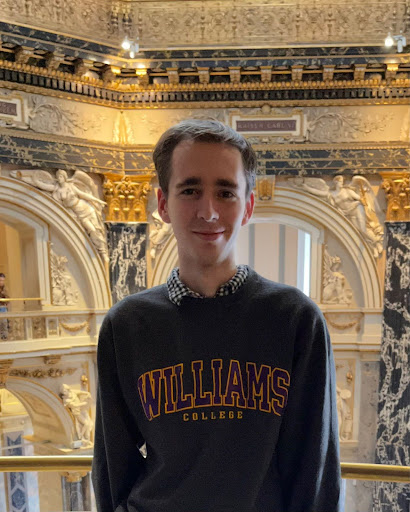
Each week, the Record (using a script in R) randomly selects a student at the College for our One in Two Thousand feature, excluding current Record board members. This week, Zach Bishop ’26 discussed French press coffee, Norwegian heavy metal, and using economics to compose music. This interview has been edited for length and clarity.
Ellie Davis (ED): Alright, Zach, what is the first thing you do when you wake up in the morning?
Zach Bishop (ZB): Well, on the weekends I like making coffee in a French press.
ED: Do you have a French press in your room?
ZB: Yeah, you know, it’s not like an electronic device. You add in the coffee and then just [makes pressing motion]. It’s really satisfying. And there’s like a nice layer on top of coffee.
ED: What’s the last thing you do before you go to sleep?
ZB: I usually like to unwind before going to sleep, so I’ll listen to music.
ED: What’s your preferred pre-bedtime music?
ZB: I actually like listening to music that’s really aggressive. It gets me into a bedtime sort of mood that kicks in my sleepy tendencies. I’ve been listening to a lot of Shostakovich symphonies or Bartok string quartets.
ED: I thought you were gonna say heavy metal.
ZB: I do occasionally listen to some Norwegian or Swedish metal, but that’s not when I am going to sleep.
ED: Under what circumstances do you listen to Swedish and Norwegian heavy metal?
ZB: When I need motivation.
ED: Tell me about how you are involved in music on campus.
ZB: I play viola in the Berkshire Symphony. The upcoming concert is the last concert with Director Ronald Feldman, who has been the conductor for a very long time. Next year should be exciting, because we’re doing job interviews for new candidates. I think the students will have some say in who the final candidates will be. I also play in a string quartet called the Purple Valley Quartet.
I’m also in a club called Music to Fulfill. We’ve been trying to increase community engagement in the music department by performing at different venues. We performed at the Neighborlies, which is this award ceremony that the mayor of North Adams [Jennifer Macksey] hosted.
ED: That’s awesome. Your girlfriend, Ashley Kim [’26], plays violin in your quartet with you playing the viola. Does that ever cause any conflict in your relationship?
ZB: Not really. I think I’m definitely the weakest link in my quartet by far. [Laughs.] I sort of just go along with whatever they say. I don’t think it ever causes any stress in our relationship.
She’s also the founder of Music to Fulfill. I think we work pretty well together. Hopefully senior year we will do the concerto competition and play Mozart’s “Sinfonia Concertante for Violin and Viola,” because that’d be fun.
ED: Why did you decide to start playing viola?
ZB: I wanted to play cello but didn’t want to carry it around, and viola has the same strings. My parents were like, “You can’t play violin,” because it’s really annoying to listen to a bad violinist practice. I think I knew that I was destined to not play in tune. So, the viola is the perfect instrument for me, because you can usually get away with that.
ED: You’re an economics and a math major. Do you think that your work in music informs your academic studies?
ZB: Yeah, definitely. I have taken a fair amount of music classes. I think it usually goes the other way around — what I’ve learned in academic courses influences my creative side in music. Because in mathematics we learn about some of the things that are related to the fundamental language behind music, like the reason why we have a 12-tone scale.
I think some of the philosophy that I’ve learned in my coursework or material I’ve studied in econ will influence my compositions a lot. I will try to put some of those ideas into a composition either explicitly, or in the background. I’m currently working on a piece which is going to be played by a visiting artist group: the New Thread Saxophone Quartet. The piece is called “The Sock, the Saxophone, and the Extraterrestrial.” It’s kind of absurd. It’s a fun piece.
ED: Do you put ideas from econ into your music?
ZB: I composed a piece for piano called “Adverse Selection.” I tried to imagine asymmetric information as the two hands of the piano. What usually ends up happening is I’ll have this idea, and then I’m like, “Oh, the music has this motif. Now let me develop that theme instead.”
ED: So, we were both in a Winter Study travel course that went to Austria. What was your favorite part?
ZB: I really liked speaking with the Vice Mayor of Graz. That was so cool to see that they do things a little bit differently — to see that their local government can be a lot more radical than it could be in the U.S.
ED: If you were to run for political office, what would your campaign slogan be?
ZB: My favorite U.S. president was Teddy Roosevelt. He had the three C’s: conservation, consumer protection, then there was the other one. [Thinks for a moment.] It was part of his square deal. I really liked that, so I’d probably come up with a different shape and make another type of deal.




